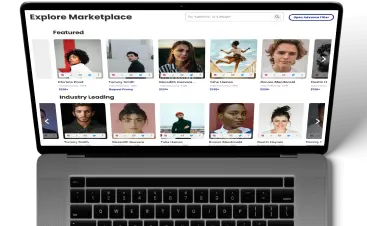What Is Business-to-Business (B2B) Omnichannel?
Business-to-business (B2B) Omnichannel refers to businesses’ integrated approach to providing a seamless and unified experience across multiple customer channels. It extends the concept of omnichannel from retail and consumer markets to the B2B context, focusing on meeting business buyers’ complex needs and preferences.
Elements Of B2B Omnichannel
- Multiple Touchpoints: B2B omnichannel encompasses various channels through which business customers interact with suppliers, including online platforms, mobile apps, physical stores (if applicable), sales representatives, and customer service centers.
- Consistent Experience: Regardless of the channel used, B2B omnichannel aims to provide a consistent experience regarding product information, pricing, availability, customer support, and fulfillment options.
- Integrated Data and Systems: Integrating backend systems such as Customer Relationship Management (CRM), Enterprise Resource Planning (ERP), inventory management, and e-commerce platforms is crucial. This ensures real-time data synchronization and visibility across channels.
- Personalization and Customization: Tailoring the experience based on individual business customers’ specific needs, preferences, and behaviors. This could include personalized pricing, product recommendations, and marketing communications.
- Seamless Buying Journey: Facilitating a smooth and cohesive buying journey for business customers, from initial research and product discovery to post-purchase support and reordering.
Benefits Of B2B Omnichannel
- Enhanced Customer Experience: Providing a seamless and personalized experience across channels improves customer satisfaction and loyalty.
- Improved Efficiency: Streamlining processes and integrating systems reduces complexity and enhances operational efficiency.
- Increased Sales Opportunities: Offering multiple channels for purchasing and support increases accessibility and convenience for business customers, potentially leading to higher sales.
- Data-Driven Insights: Access to comprehensive data from multiple channels enables better decision-making, customer segmentation, and targeted marketing efforts.
Implementation Challenges
- Integration Complexity: Connecting disparate systems and data sources can be challenging, requiring significant technological and infrastructure investments.
- Organizational Alignment: Ensuring alignment across departments (sales, marketing, IT, customer service) and stakeholders is essential for successful omnichannel implementation.
- Adapting to Changing Customer Expectations: Business customers expect the same level of convenience and personalization in B2B transactions as in B2C, necessitating continuous adaptation and improvement.
B2B omnichannel is increasingly important as business buyers expect seamless, efficient, and personalized interactions with suppliers across digital and traditional channels. It represents a strategic approach for B2B companies to stay competitive and meet the evolving needs of their customers in today’s digital economy.




